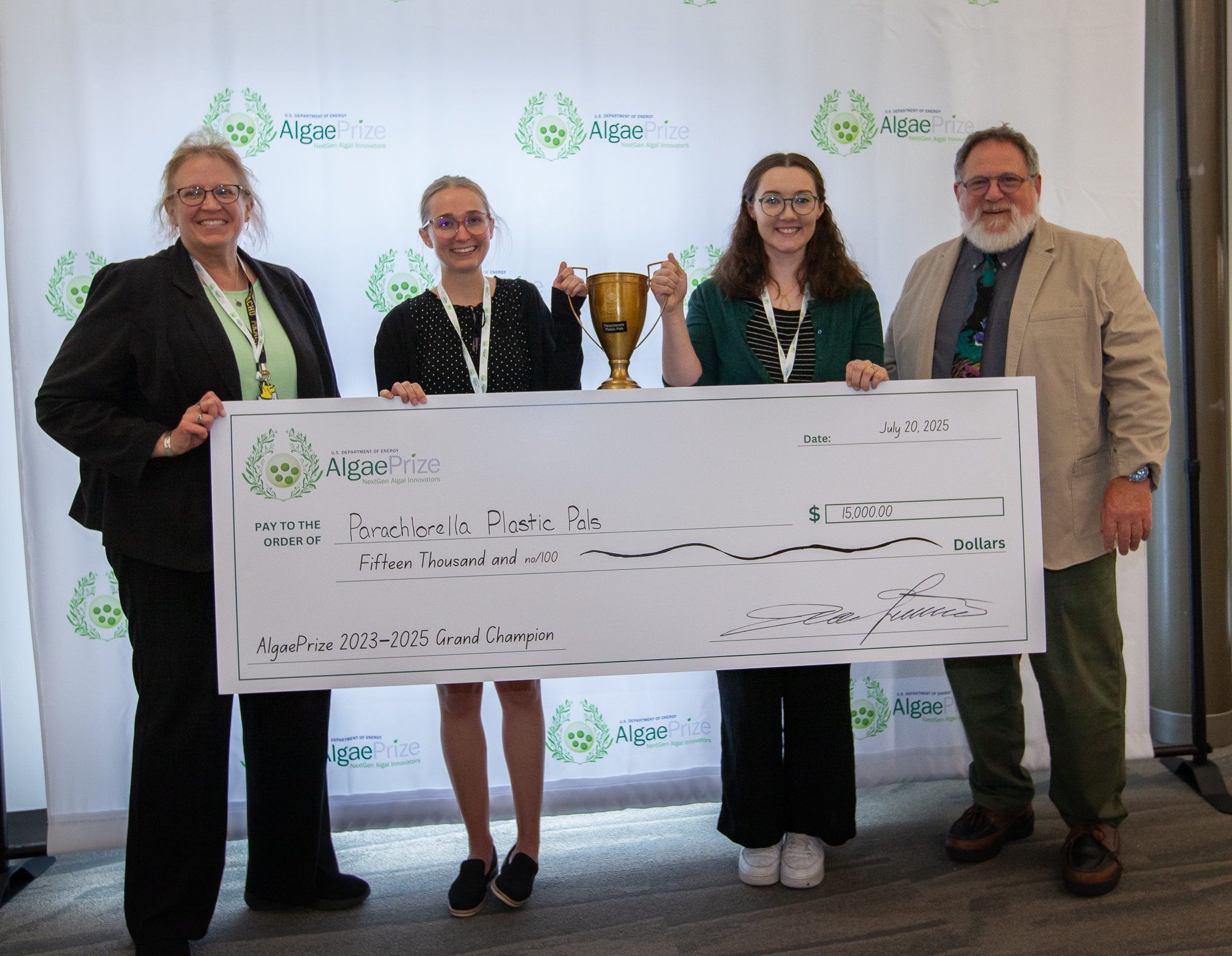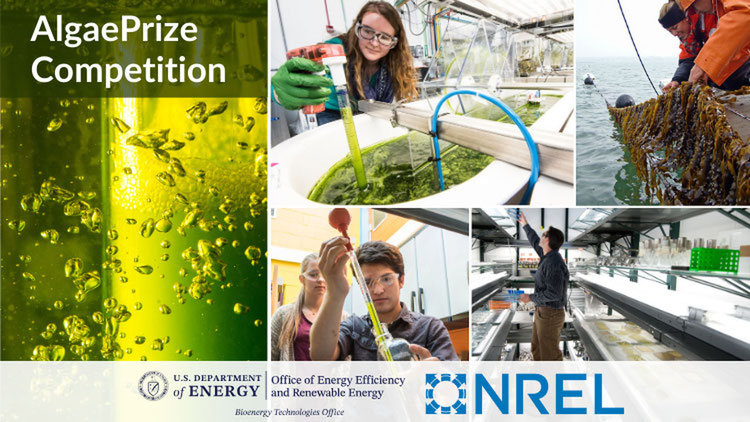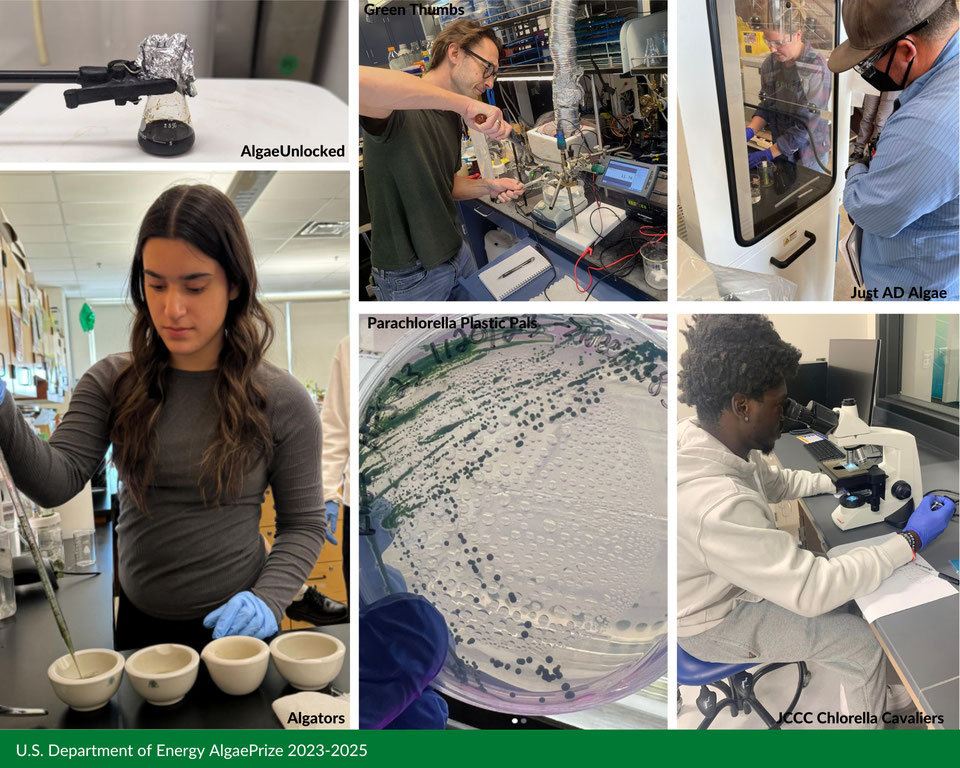BETO Announces the Department of Energy AlgaePrize 2023 - 2025 Grand Champion
Provided by the Bioenergy Technologies Office.

2023-2025 DOE AlgaePrize Grand Champion Team Parachlorella Plastic Pals, University of California, San Diego in La Jolla, California. Photo Courtesy of John DeLaRosa Photography
The U.S Department of Energy (DOE) Bioenergy Technologies Office (BETO), in partnership with the Algae Foundation and NREL, today announced the grand champion and top four winning teams of the 2023 - 2025 U.S. DOE AlgaePrize Competition!
Launched in 2022 and in its second iteration, the AlgaePrize challenges students to think like bioeconomy professionals by developing novel solutions to challenges associated with gigaton-scale algae commercialization. The AlgaePrize Competition supports DOE's effort to expand the domestic supply of an affordable and reliable energy resource. AlgaePrize 2023 – 2025 teams included competitors from high schools, colleges, and universities across the United States who had the opportunity to gain real-world science, technology, engineering, and mathematics experience. The teams developed innovative solutions for algae production, processing, and new product development to lower the costs of producing algal biofuels and bioproducts.
During the AlgaePrize Competition weekend on July 18 – 20, 2025, 13 finalist teams showcased their projects to a panel of judges at NREL in Golden, Colorado.
Team Parachlorella Plastic Pals of University of California, San Diego in La Jolla, California, won this year’s competition and received a total of $25,000 in prize money. The team aimed to make biodegradable plastic (TPU) from algae, focusing on three key steps: growing the algae, turning its oil into useful ingredients, and creating and testing the final plastic products.
Four other teams were named top finalists and each received $10,000 in prize money:
- AlgaeNano+ - University of Puerto Rico, Rio Piedras in San Juan, Puerto Rico
- Aloha Limu - University of Hawaii at Hilo in Hilo, Hawaii
- BlazerBloom - Hood College in Frederick, Maryland
- JCCC Chlorella Cavaliers - Johnson County Community College in Overland Park, Kansas
“The AlgaePrize is more than a competition, it’s a launchpad for breakthrough science and innovation that support a secure energy future,” said Dr. Valerie Sarisky-Reed, Director of BETO. “This year’s finalists exemplify how student-led research, driven by creativity, collaboration, and technical rigor, can help advance algae-based technologies and contribute to greater U.S. energy independence.”
BETO supports research and development to lower the costs of producing algal biofuels and bioproducts. The AlgaePrize competition is part of DOE’s American-Made Program, a national energy innovation ecosystem that connects competitors with experts, mentors, incubators, and investors to help develop products, secure funding and bring innovations to market.



.png)
_.jpeg)










